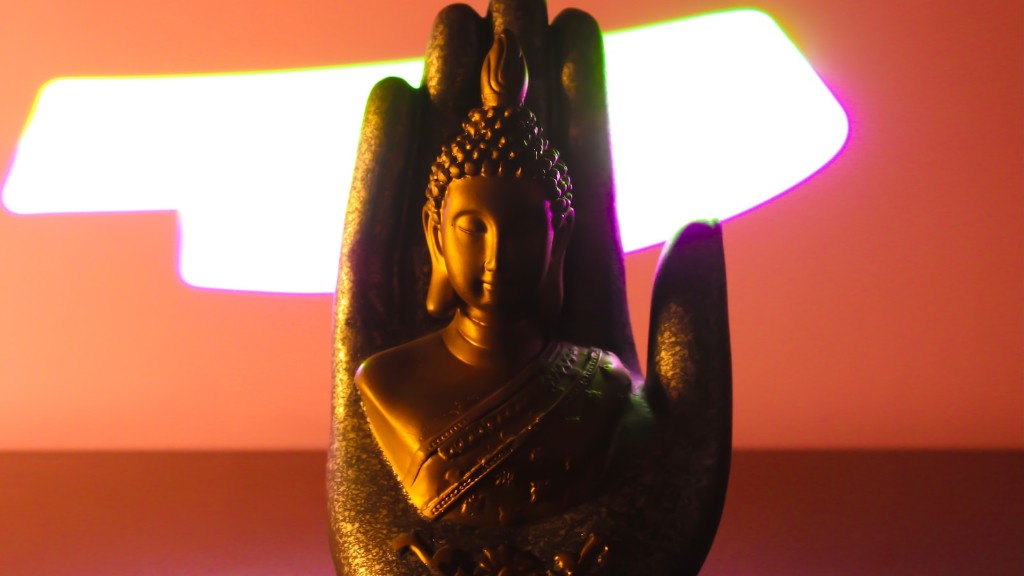Buddhism is a religion that was founded by Siddhartha Gautama in the early 6th century BCE. The major belief of Buddhism is that people are reborn after death, and that they live in a cycle of rebirths called samsara. Buddhism also teaches that people can end this cycle of rebirths by following the Noble Eightfold Path.
Buddhism is a religion and philosophy based on the teachings of the Buddha, Siddhartha Gautama, who lived in India in the 5th century BCE. The Buddha’s teachings were compiled by his disciples into the Pali Canon, the scriptures of Theravada Buddhism. belief in the Three Jewels doctrine (the Buddha, the Dharma, the Sangha);
samsara (rebirth);
karma;
nirvana;
Buddhist laypersons typically take the Five Precepts as an ethical code to live by; while monks and nuns take the additional precepts to uphold their monastic status. Other major beliefs and practices include the following:
What are the major practices of Buddhism?
Buddhists engage in a variety of devotional and veneration practices as a way to express their faith and devotion to the Buddha and to various bodhisattvas. The most common types of veneration practices include merit-making, bowing, giving offerings, chanting, meditating on the qualities embodied by specific buddhas or bodhisattvas, and pilgrimage. These practices are often done as part of a daily devotional routine or in specific contexts such as at a temple or during a festival.
Veneration practices help Buddhists to cultivate positive qualities such as compassion and wisdom, and to develop a deeper understanding of the Buddha’s teachings. They also provide a way for Buddhists to connect with the Buddha and bodhisattvas on a personal level. Pilgrimage, in particular, is seen as a way to accumulate merit and to create a strong connection with the holy sites associated with the Buddha’s life.
Buddhism is a religion that is based on the teachings of Siddhartha Gautama. The main principles of this belief system are karma, rebirth, and impermanence. These concepts teach that our actions have consequences, that we are reborn after we die, and that everything in life is temporary. Buddhism can be a very helpful path to follow in order to live a meaningful and peaceful life.
What are the 5 main beliefs of Buddhism
These are the five precepts that are often followed by those who practice Buddhism. They help to create a more peaceful and harmonious world by refraining from taking life, stealing, and abusing substances. Following these precepts can lead to a more satisfying and fulfilling life.
Suffering is an inevitable part of human life. No one can escape from suffering while alive. Suffering comes from people’s desires for pleasure and material goods. Overcoming these desires during life eventually brings suffering to an end. Desires can be overcome by following the Eightfold Path.
What are the 8 main beliefs of Buddhism?
The Eightfold Path is a series of eight steps that Buddhists can follow to help them lead a contented (satisfactory) life. They are: Right Understanding; Right Thought; Right Speech; Right Action; Right Livelihood; Right Effort; Right Mindfulness; Right Concentration.
Buddhism is one of the world’s major religions, with over half of its followers living in just one country, China. Buddhism has a long and rich history, and its teachings have had a profound impact on Chinese culture and society. Though Buddhism is not as prevalent in other countries, it still has a significant following in places like Thailand, Japan, Burma, Sri Lanka, Vietnam, Cambodia, South Korea, India, and Malaysia.
What is one of the most important beliefs in Buddhism?
Buddhism teaches that after a person dies, their soul is reborn into another body. This cycle of birth, death and rebirth is known as reincarnation. Buddhists believe that reincarnation is a way for the soul to gain new experiences and grow. A person’s actions in their current life (known as karma) determine what they will be reborn as in their next life.
There are certain beliefs that are common to virtually all Hindus. These include, but are not limited to, a belief in many gods, which are seen as manifestations of a single unity; a preference for one deity while not excluding or disbelieving others; and a belief in the universal law of cause and effect (karma) and reincarnation.
What are Buddhist beliefs about God
Buddhist teachings state that there are divine beings called devas (sometimes translated as ‘gods’) and other Buddhist deities, heavens, and rebirths in its doctrine of saṃsāra, or cyclical rebirth. However, Buddhism teaches that none of these gods is a creator or an eternal being, though they can live very long lives.
Karma is often explained as cause and effect.
Reincarnation is the belief that after someone dies, they are reborn into another body.
Enlightenment is the state of being free from ignorance and attaining supreme knowledge.
Buddhism rejected the caste system, which is a social hierarchy based on one’s birth.
Nirvana is the state of perfect bliss, freedom from suffering, and the end of the cycle of rebirth.
The four noble truths are that suffering exists, that suffering has a cause, that there is an end to suffering, and that there is a path to the end of suffering.
The eight fold path is a path of Buddhist practice consisting of right views, right resolve, right speech, right action, right livelihood, right effort, right mindfulness, and right meditative concentration.
How many practices are there in Buddhism?
Buddhism teaches that the way to end suffering is to live a life of compassion and love. The main goal of Buddhism is to achieve nirvana, or a state of complete peace and enlightenment. When someone dies, they are reborn into another body, and the cycle of birth and death continues until nirvana is reached. Buddhists believe that by following the Noble Eightfold Path, which includes things like right speech and right action, they can end the cycle of birth and death and achieve nirvana.
1. Clear Viewpoint: It is important to have a clear understanding of what you believe in. Don’t just believe something because you saw it or heard it. Try to look at things from different perspectives and come to your own conclusions.
2. Values: What you value in life is important. We often get so caught up in what we’re doing that we forget what’s important to us. by taking the time to focus on our values, we can make sure that we’re heading in the right direction.
3. Words that Inspire: Words have power. Choose your words carefully and use them to inspire yourself and others to take positive actions.
4. Actions with Impact: It’s not enough to just take action, but it’s important to take action that will make a difference. Think about what you want to achieve and make sure your actions are aligned with that goal.
5. Be Mindful: Pay attention to the present moment and be aware of your thoughts, feelings, and surroundings. This will help you to be more in control of your life and make better choices.
6. Concentrate Right: When you’re trying to achieve something, it’s important to concentrate your efforts in the right direction.
What are Buddhist beliefs about death
Buddhists believe that life and death are part of a continuum, and that consciousness (the spirit) continues after death. Death can be an opportunity for liberation from the cycle of life, death and rebirth.
The main Buddhist values are love, wisdom, goodness, calmness and self-control. Buddhists believe that people should try to end suffering; all things should be seen as having no self or essential nature.
What are key facts about Buddhism?
Buddhism is one of the oldest religions in the world, and it has millions of followers. Unlike other religions, Buddhism does not have a single holy book. Instead, there are many scriptures that have been preserved in different languages. Buddhists also don’t believe in a supreme being or creator god.
The most common rituals practiced in all Hindu households are puja, meditation, silent prayers, yoga, recitation of scriptures from Bhagavad Gita or bhajans, reading religious books, participating in Satsang (prayer meets), performing charitable work, visiting a temple, and chanting the name of their beloved God.
Warp Up
There are many different beliefs and practices within the Buddhist tradition, but some of the major ones include the belief in karma and reincarnation, the practice of meditation, and the pursuit of enlightenment.
In conclusion, the major beliefs and practices of Buddhism revolve around the teachings of the Buddha and the Four Noble Truths. Buddhist followers believe in karma, reincarnation, and the power of meditation and mindfulness to achieve enlightenment.




